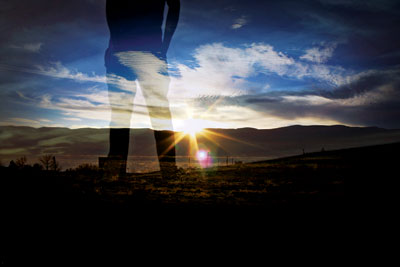All Nonfiction
- Bullying
- Books
- Academic
- Author Interviews
- Celebrity interviews
- College Articles
- College Essays
- Educator of the Year
- Heroes
- Interviews
- Memoir
- Personal Experience
- Sports
- Travel & Culture
All Opinions
- Bullying
- Current Events / Politics
- Discrimination
- Drugs / Alcohol / Smoking
- Entertainment / Celebrities
- Environment
- Love / Relationships
- Movies / Music / TV
- Pop Culture / Trends
- School / College
- Social Issues / Civics
- Spirituality / Religion
- Sports / Hobbies
All Hot Topics
- Bullying
- Community Service
- Environment
- Health
- Letters to the Editor
- Pride & Prejudice
- What Matters
- Back
Summer Guide
- Program Links
- Program Reviews
- Back
College Guide
- College Links
- College Reviews
- College Essays
- College Articles
- Back
Perception of Prejudice
We live our lives based on what we perceive is the "right" way. This phenomenon of detestation that we feel is as close to us as our own self. As a basic American, we can all identify ourselves with at lease one form of prejudice, whether it be because the color of your skin or your sexual preferences. Generally, as children we are raised to comprehend what it is to have hate toward another human being because of their flaws. In the earlier stages of our lives, we figure out what it is that we find attractive and repulsive on one another. From these attractions and repulsive feelings, we form these preconceived notions. In most of these instances, we are able to recognize what the results of harmful responses to others are. For example if someone does something to harm or disappoint us in some way, we may look at it as no big deal and keep going on with our day without hitting or shouting in retaliation. Sometime, we can let go of negative feelings, but occasionally we may let those feelings and emotions get the best of us. We may perhaps lose control and become victims of our own perceptions of prejudice.
For example, a child who is constantly bullied by another child of a different race (lets say for instance an African American child) will in the long run suffer from being bullied and possibly seek vengeance on his or her perpetrator. That child will in future instances, associate the hurtful memories of the African American child with others of that same race. The child may or may not intentionally hold prejudice, but because he/she experienced unfavorable situations, will attribute the African American ethnic group and its people as unpleasant and hurtful. Of course, this can be the case with any race and not only associated with African Americans. Usually, once we have experienced a negative situation with an individual of a different race than our own we hold those negative memories against others.
A gay man may be a target of prejudice by a group or an individual by simply being what he is. I can vividly remember an incident that happened when I was younger. Three men ran up to two gay men eating in a park and began beating them. During the attack, the assailants called the victims "queers" and "f***." One of the victims also was called anti-Asian slurs. This is just another example of prejudice, in this case, towards social sexual preference of the victim. The gay men were not hurting anybody but because three ignorant people believed that the lifestyle and appearance of the gay men was wrong or unnatural in some way, justified in their minds that beating the men was right.
Prejudice is not classified specifically towards one group of individuals. It begins with our hatred of one person in a particular group. From that hatred, we move in the direction of abusive and damaging behavior towards the group of people that the individual may belong too.
Is prejudice certain to happen? Is it a personal dysfunction or a learned behavior? There are so many questions that we can ask ourselves on this one topic alone. Prejudice is the process of pre-judging. In other words, it means to come to a conclusion about a subject matter before knowing anything about it. Basically, judging a book by its cover. Whether we intend to be or if it is in our subconscious, we all seem to pre judge other. We can't blame ourselves for these ideas built up by our family and friends. We hear the rumors and they build up into perceptions of prejudice. I know who I am, and whether it is accepted or not, I will prevail. The color of my skin or my sex is something I have no control over, and I shouldn’t be held accountable for anything that has to do with those things. Life is about being comfortable and having the credibility to acknowledge someone on what they achieve and not the color of their skin or any other uncontrollable aspects of life.

Similar Articles
JOIN THE DISCUSSION
This article has 0 comments.
